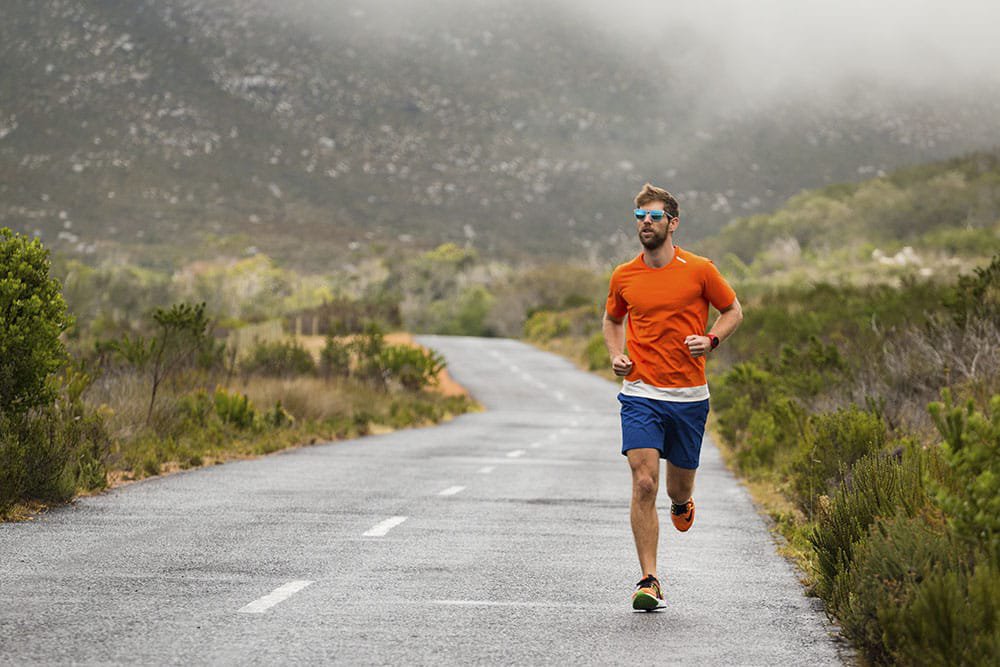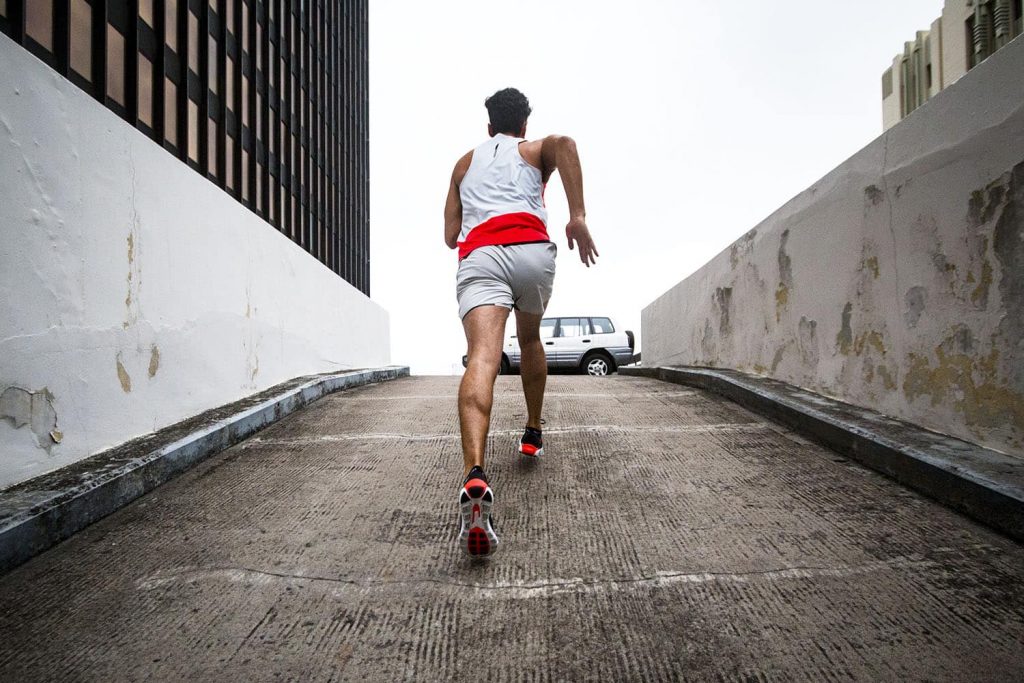Running Through The Coronavirus Crisis
The essential advice, knowledge and inspiration that will help you run safe and strong – and keep you sane – during the coronavirus crisis.
How about our mental health? What do runners struggling with anxiety and other issues need to know?
“I think the unknown is a great source of anxiety, so in some ways that will reduce as we learn more about the virus and have more information,” says Dr Frankie Jackson-Spence of the UK’s National Health Service. “Things will also become the ‘new normal’, and we’ll make adjustments.
My top tip for reducing anxiety would be to maintain a routine: get up and get dressed and showered as you normally would; try to keep as much normality as possible. Think about those social interactions throughout the day, like the chat with the person you sit next to in the office, or the chit-chat you might have at lunch. These are still important for our mental well-being, so try to stay connected by video chats, or calling friends and colleagues even when working from home.”
RELATED: Mental Fatigue Can Easily Sabotage Your Endurance
Jackson-Spence also highlights the value in keeping up our running routines for our mental as well as our physical health: “For many, running is a form of therapy. Exercise releases endorphins, it makes us feel happier, which I think we can all do with at the moment. And If things get really difficult, use resources such as safmh.org.za, which has loads of links to local networks for support.”

Why you should run through stressful times
The evidence is clear that when the going gets tough, it’s better to keep going, says Scott Douglas, author of Running Is My Therapy: Relieve Stress and Anxiety, Fight Depression and Live Happier
When life gets overwhelmingly stressful, some people retreat into their running. Others take the opposite approach – they put running on the back burner to devote all their time to the crisis.
Research on exercise and stress is firmly in favour of the first approach. It has found that staying active during periods of high stress – work, family emergencies, relationship troubles and the like – will help you experience the stressors less severely and survive the situation in better physical and mental health.
Research in lab settings has found reduced emotional reaction to artificially induced stress after people exercise. For example, in a US study at the University of Maryland, people who looked at unpleasant images 15 minutes after a 30-minute workout showed lower levels of anxiety than people who looked at the images after sitting quietly for those 30 minutes. Of course, runners have long intuited the value of maintaining a routine during hectic times. Doing so usually provides a respite from your worries, gives you a chance to think things through and helps you feel like you haven’t lost complete control of your life.
What’s significant about this research is that it compared people’s activity levels to their recall of real-world stressors and confirmed that getting out the door on tough days is key to those days not seeming as bad. The research, published in Health Psychology, got more than 2 000 adults to track their exercise and recall stressful life situations for eight consecutive days. The daily-life events included arguments with others, avoiding arguments with others, discrimination, stress at work or home, and stress involving a family member or close friend. The researchers did two key sorts on the data they collected: first, between generally underactive people and regular exercisers; and second, between how people recalled their stress levels on days they exercised and days when they didn’t.

Specifically, the researchers measured what’s known as ‘negative affect reactivity’, or how you experience unpleasant events emotionally. Having low negative affect is roughly akin to emotional stability; you experience unpleasant situations but aren’t overwhelmed by them. Low negative affect is good not only in the moment – your day isn’t ruined – but also in the long term, because you’re less likely to suffer the health consequences of frequent swings in your blood pressure and stress-hormone levels.
In the research, there was no difference between how often active and less-active subjects had stressful days. What was different was that on high-stress days, the regular exercisers’ negative affect was 14 per cent lower. That is, the same sorts of bad things happened, but the exercisers were significantly less rankled by them. Dr Eli Puterman, the lead researcher and a professor of kinesiology at the University of British Columbia, Canada, said exercisers’ edge in this matter is probably a combination of reacting less severely as the stressor is happening and not remembering the stress as so severe at the end of the day. “We are constantly rewriting our memories, so if exercise makes me happy or calm more often, I might interpret the stressor as less impactful as it’s happening; and also, I might recall it later as less stressful,” says Puterman.
Indeed, there’s growing consensus that – as a review of research published in Clinical Psychology Review put it – “exercise training recruits a process which confers enduring resilience to stress”. This phenomenon is thought to be related to structural brain changes, such as the growth of (and better connection between) neurons, caused by running and other forms of aerobic exercise.
RELATED: When Running Stresses You Out…
So as a runner, you’re better equipped to survive high-stress times. Still, on any stressful day, try to run. The researchers found subjects’ ‘negative affect’ was 17 per cent lower on days when they worked out. Furthermore, they got that benefit regardless of when they exercised. The less active people, in contrast, got the biggest boost in handling stress if an event happened soon after a workout; their emotional stability dissipated as more time passed since exercising.
The takeaway: make more of an effort to find time to run on stressful days. “My best advice is to schedule workouts, because when you’re stressed, it’s really difficult to feel that you have the time or energy to work out,” says Puterman. It doesn’t have to be a long or hard run – a few easy kays at a conversational pace will do the trick. Consider that time your secret weapon in handling these uniquely stressful times.

If someone has suffered from coronavirus, how will this affect their return to running?
“We know some people will get mild or even no symptoms, and others will suffer a serious lung condition, known as Severe Acute Respiratory Syndrome or SARS,” says Jackson-Spence. “We don’t actually know the long-term effects this virus might have on your lungs yet, but people who have had SARS have been shown to sometimes have reduced exercise capacity later in life.
“For those who require hospital admission and assisted ventilation, we don’t know yet what their lung health is going to be, but if you have mild symptoms, the chances are your lung inflammation will be fairly low and you’ll probably recover to 100 per cent. If you’re a healthy person with no pre-existing health conditions or lung disease, who suffers a nasty chest infection and then recovers, when you’re ready to return to exercise, take it lightly.”

THE BEST PODCASTS FOR SOLO RUNNING
1. The Runner’s World UK Podcast
Hosted by RW’s Rick Pearson and Ben Hobson, with appearances from other team members and guests from the running world, it’s packed with passion, insight and inspiration.
2. Radio
The team behind the app that took meditation main-stream chat to athletes, adventurers and scientists about what the mind can do. Learn what your brain looks like on kindness and why regret can be good for you.
3. Bryony Gordon’s Mad World
A roster of A-list stars sharing their mental health struggles is humanising; and in times when many of us are facing such challenges, much needed.
4. Running Commentary
Comedians Paul Tonkinson and Rob Deering talk about life and comedy – but mainly running. Quirky, funny and insightful.
READ MORE ON: coronavirus coronavirus crisis health news



